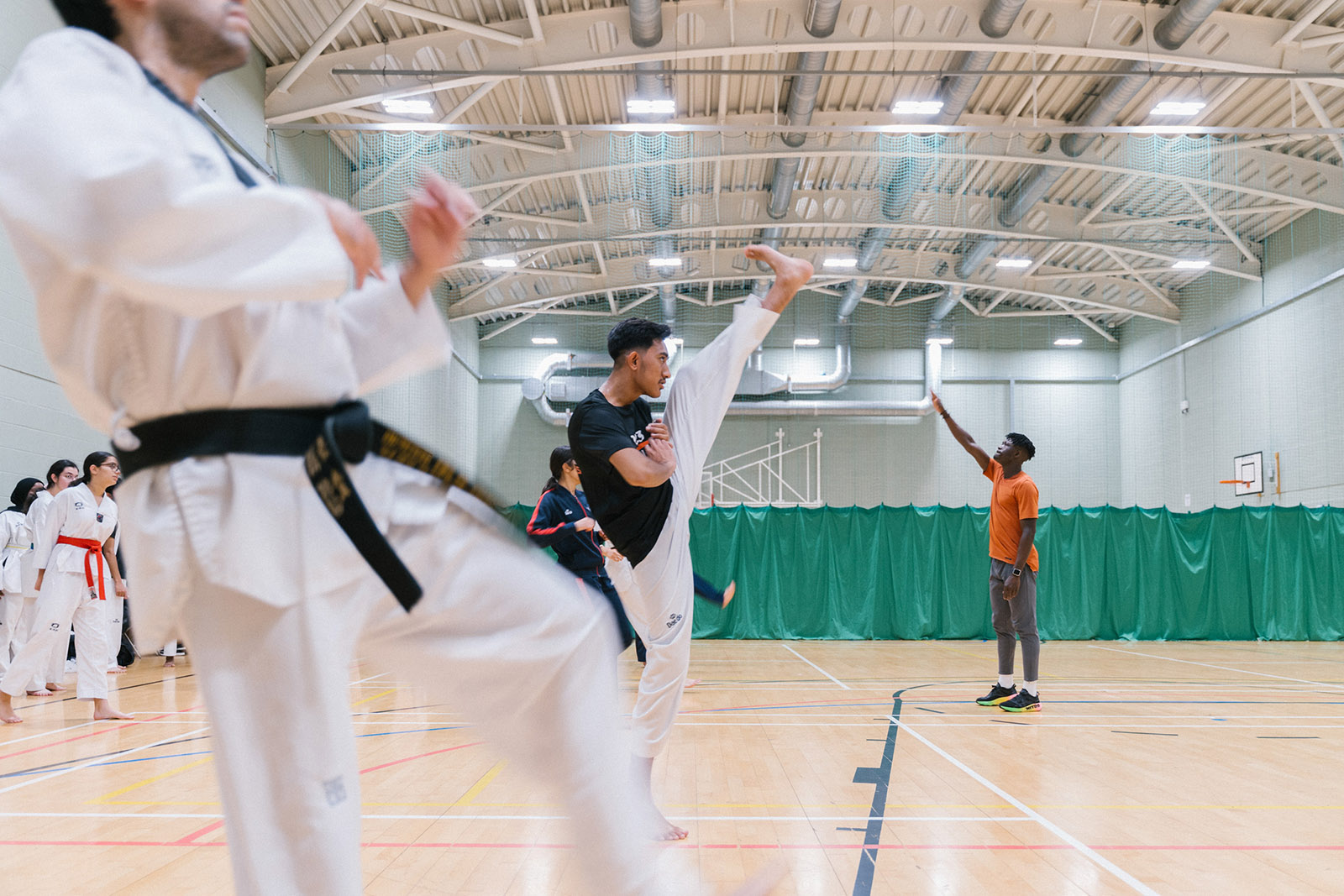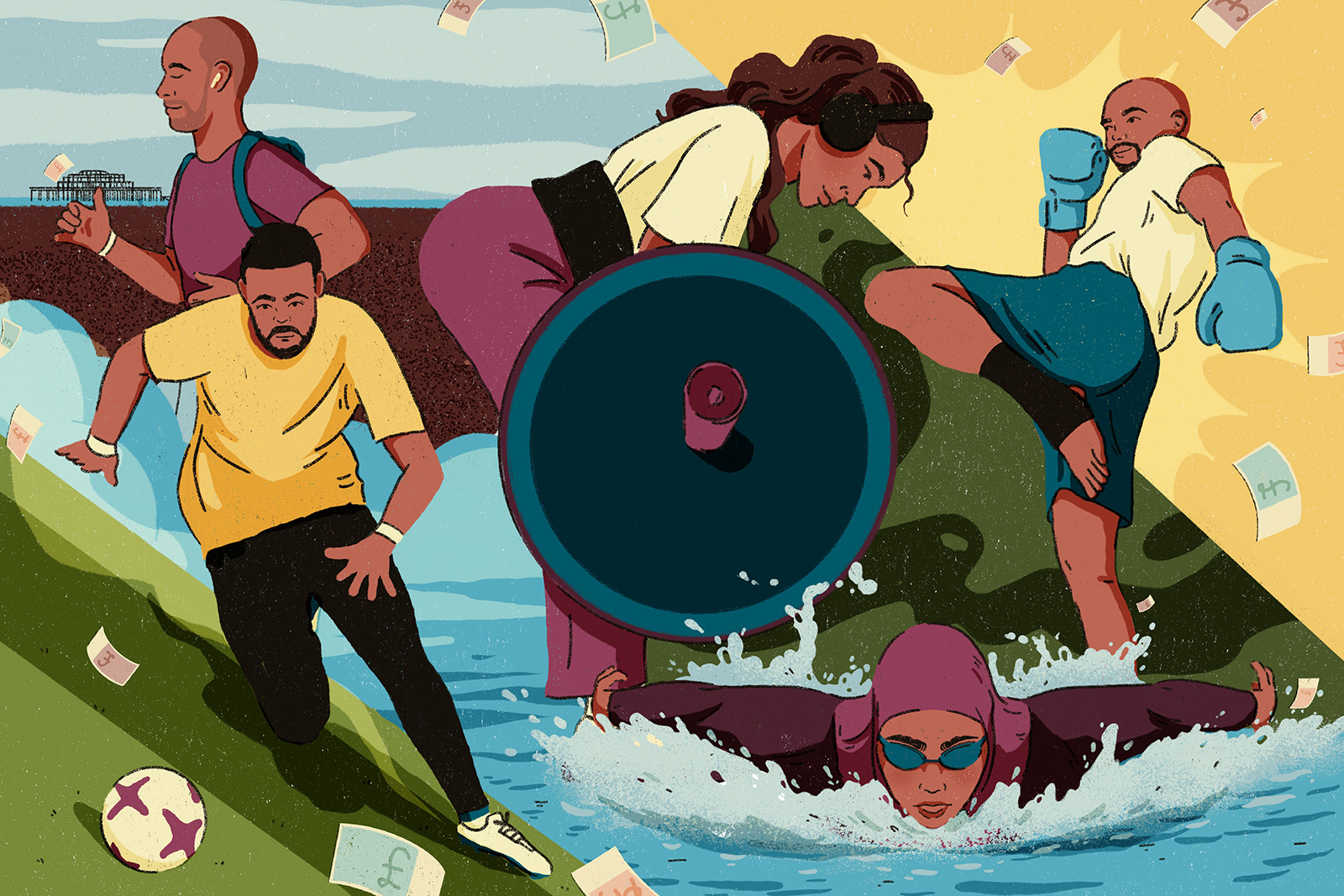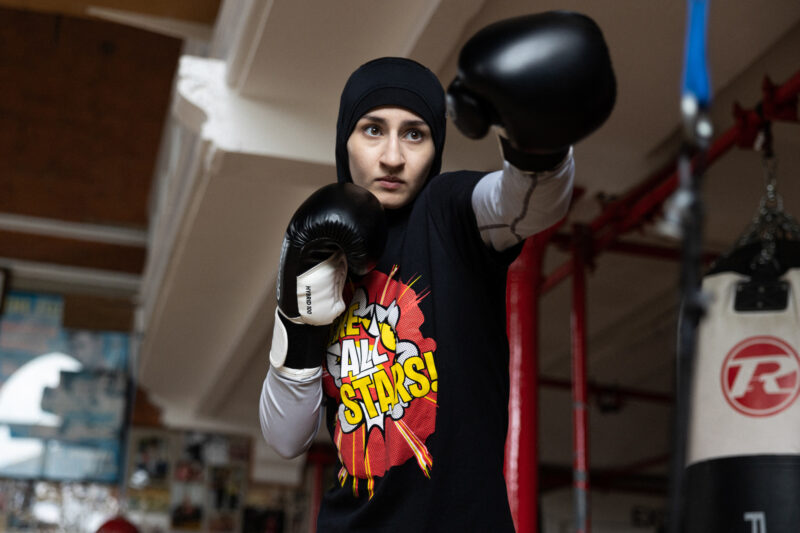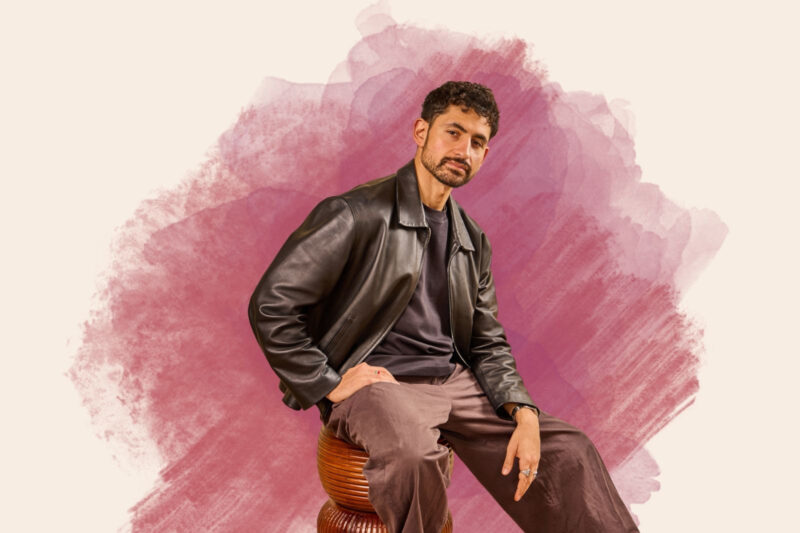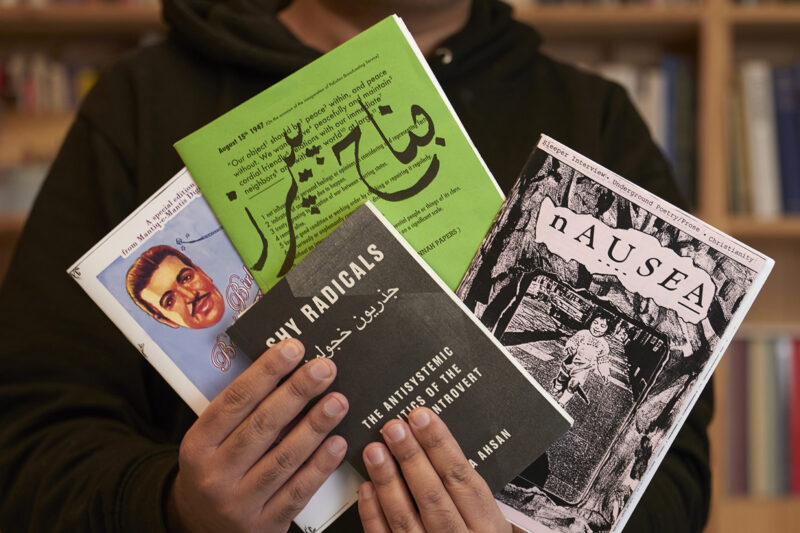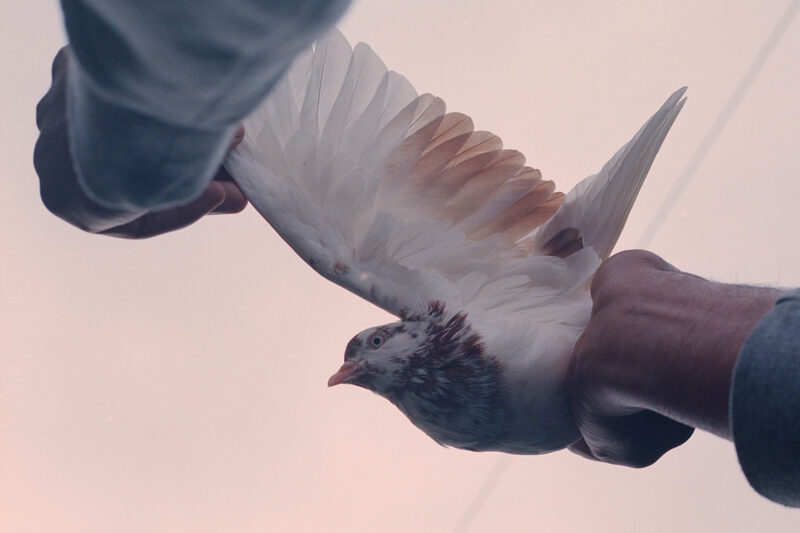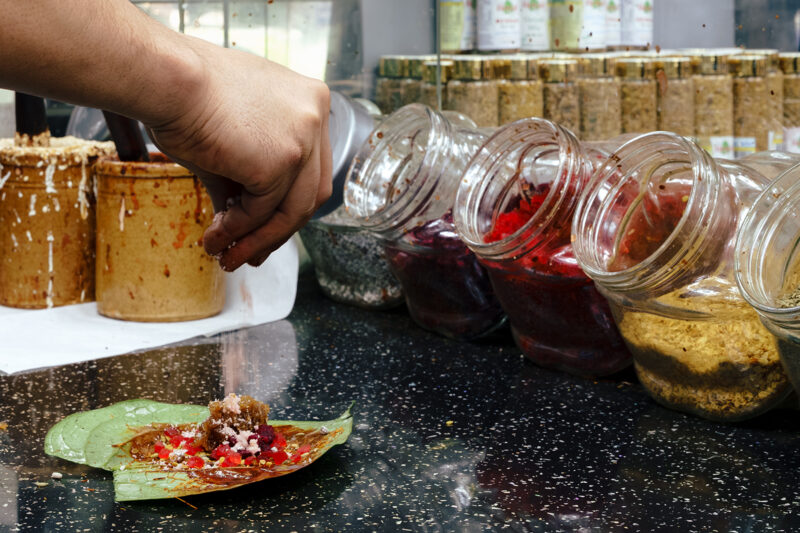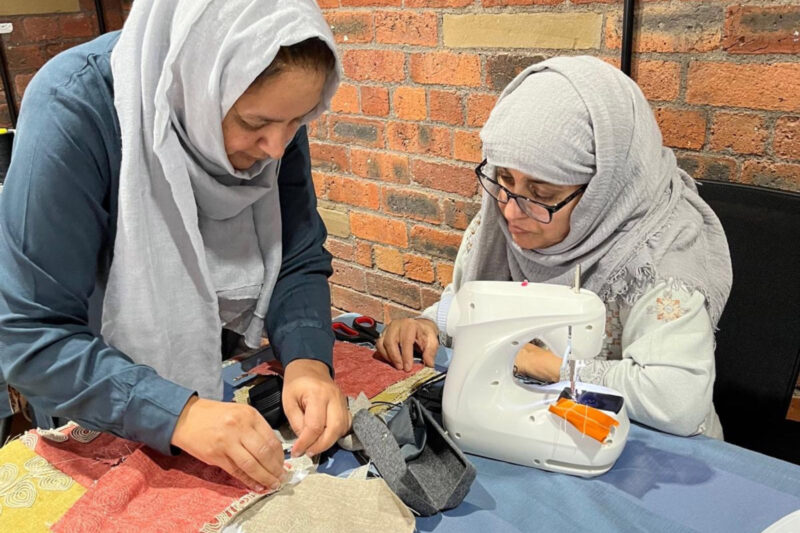Sumo wrestling police forensics worker urges more UK Muslims to take up martial arts
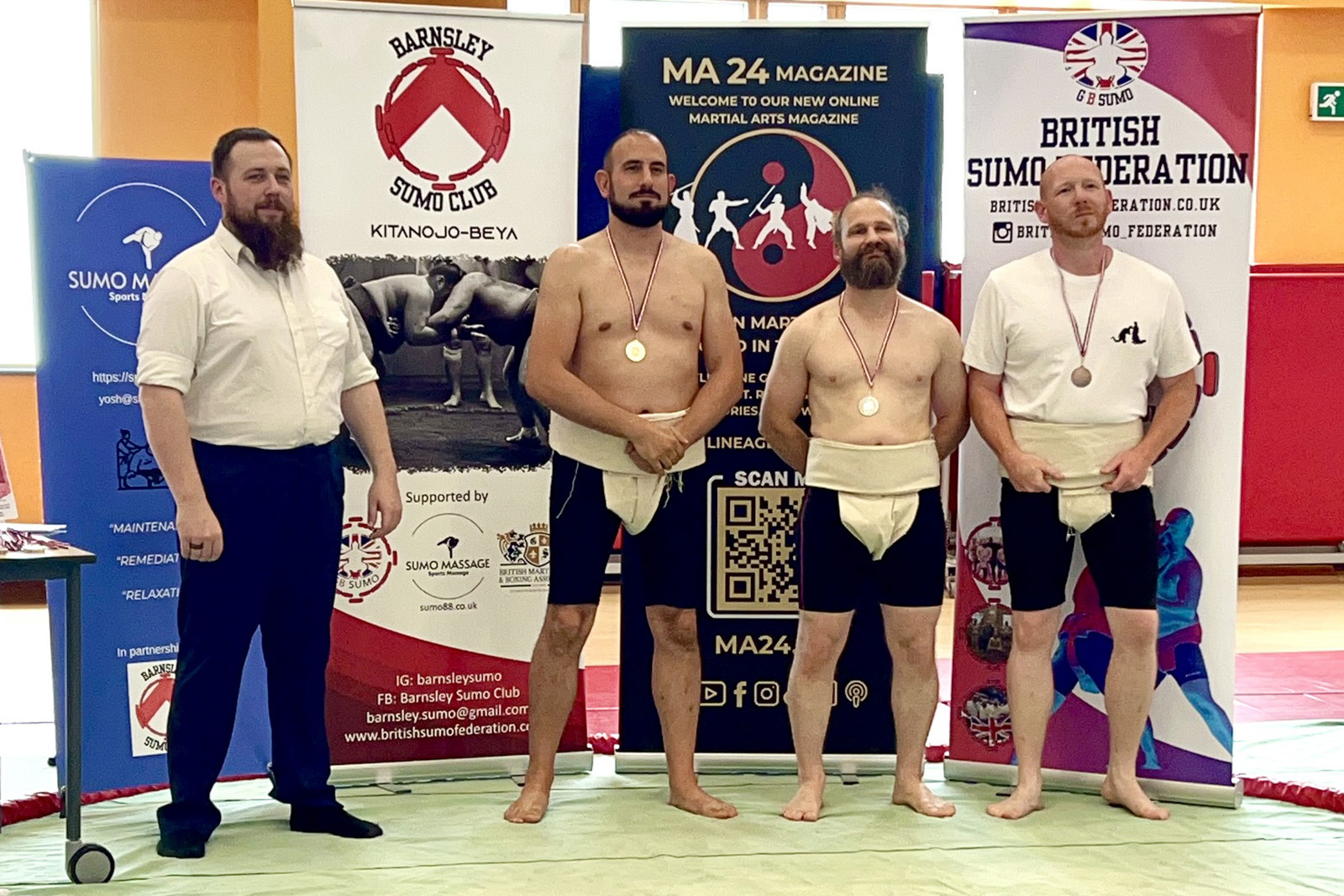
Alex Gent, who chairs the National Association of Muslim Police, won a gold medal at this year’s British Sumo Federation Championships
England’s first Muslim sumo wrestling champion, a forensics worker from Bingley who chairs the National Association of Muslim Police, has said he is on a mission to encourage others from the faith to take up martial arts.
“My intention is to revive the Islamic tradition of wrestling,” said Alex Gent. “Whether it’s wrestling or sword fighting, martial arts are known to be sunnah. I found that a lot of principles in sumo line up with what I had found in historical Islamic manuscripts, partially because sumo, like wrestling in the Islamic tradition, originated in the battlefield.”
Gent won a gold medal in this year’s men’s lightweight event at the British Sumo Federation Championships 2025, which took place at Penistone Grammar School in South Yorkshire in May.
By day, he is a forensics worker for West Yorkshire Police. In 2009 he founded the West Yorkshire regional branch of the police association for Muslim officers and staff and now chairs the national body, advocating for members. “It gave me the confidence to challenge problems head on,” Gent said of martial arts. “Whereas before I might have shied away from them, martial arts allowed me to address issues but not in a confrontational way.”
Sport has always been a big part of Gent’s life. As a teenager, he earned a brown belt in karate. He dabbled in football and is a keen free diver and a certified swim coach specialised in helping people overcome aquaphobia. But martial arts, he said, were always his calling.
“I tried a lot of different things in my early 20s,” he said. “I tried the gym and going back to karate but it didn’t really connect with me. Then I discovered aikido in 2007 and as soon as I did it I knew it was for me. Martial arts are not just a sport — for me, it’s integral to everything I do.”
It was through aikido — a Japanese martial art developed in the early 20th century that focuses on deflecting attacks rather than overpowering an opponent — that Gent discovered sumo, winning this year’s gold medal, his first, just two years after he began practising. But taking the first step into the sport can be intimidating for some, he said.
“I think there is a bit of stigma attached to what wrestlers wear and what they look like,” he said. “Some people think the mawashi [loin cloth] looks like a nappy.”
Professional sumo is closely linked to Japanese tradition. Becoming a professional wrestler requires living in Japan and moving into a heya — a building where wrestlers live, eat and train together under the supervision of a sumo elder.
But amateur sumo associations, which run all around the world, are a lot less demanding. Wrestlers can wear shorts or leggings under their mawashi as well as T-shirts or vests. Unlike professional sumo, the sport is divided into four weight categories between 85kg and 115kg for men, meaning that bulking up is not necessary to compete.
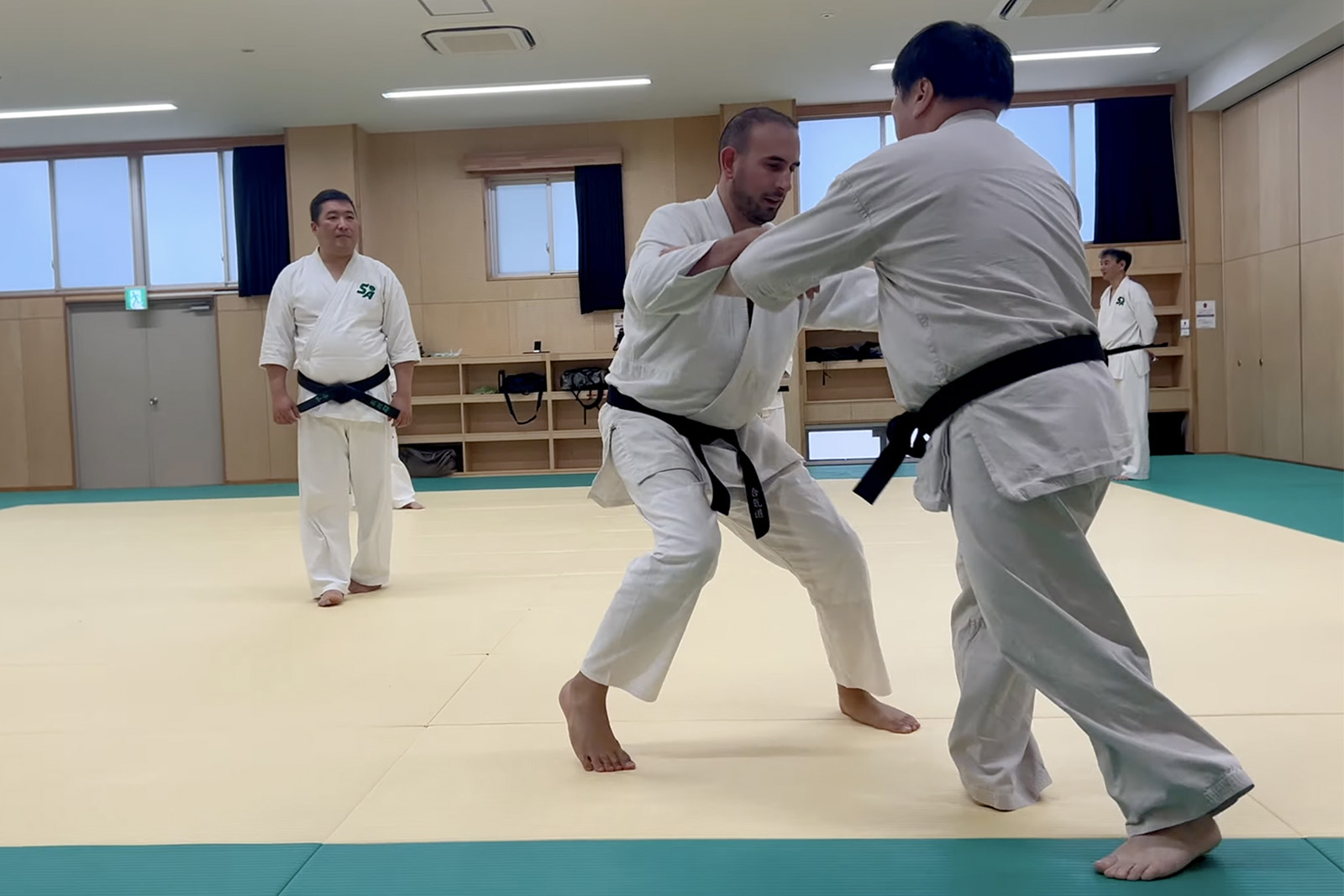
“The mawashi can seem like a barrier to Muslims or people from other cultural backgrounds where they don’t want to wear something so revealing. If I couldn’t wear shorts or leggings I don’t think I’d feel comfortable doing it either,” he said. ”But if you look at people practising sumo in the UK, you’ll find they are all wearing different clothes and come in all shapes and sizes. It is a great martial art to get into.”
Of aikido, Gent added: “It helped me to look at myself introspectively. It taught me about balance and not caving to pressure but at the same time not being aggressive or reacting emotionally.
“I think as Muslims we should strive for balance in everything we do, and I think martial arts and wrestling, as well as swimming and other sunnah sports, are great for learning this.”
Gent runs an aikido club in Bingley and hopes to soon offer sumo classes. His primary ambition, however, is to revive the ancient Islamic martial arts and spark Muslim interest in the medieval tradition of furusiyya, the Arabic knightly ethical code that can be traced back to 10th century Iraq.
“Furusiyya in the Islamic tradition can be compared to chivalry in the medieval European context. It’s not just about how you fight, it’s holistic,” Gent said. “But in terms of written sources on the topic that survive from the period, there are only a few manuscripts.”
Gent said he had been researching and collecting furusiyya sources for the past few years as a personal project. He is currently discussing his findings with researchers at Leeds University and is considering pursuing them through academia — but said his priority was popularising furusiyya teachings with the public via his YouTube channel and encouraging Muslims to connect with sports.
Gent also organises wellbeing retreats aimed at Muslims with recent outings to the Lake District and Yorkshire Dales — inspired by his parents.
“Back in the 70s and 80s mixed marriage was not as common,” said Gent, who has an Iraqi mother and an English father. “I think we didn’t really fit into one community or the other. So my parents did a lot of work to build a community themselves and they ran retreats aimed at new Muslims and their families who want to learn more about Islam. I think this experience stayed in my mind and now I find myself doing something very similar.”
Next year, Gent hopes to run a retreat that will, for the first time, include sumo.
 Newsletter
Newsletter


